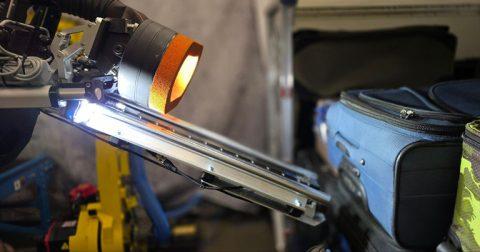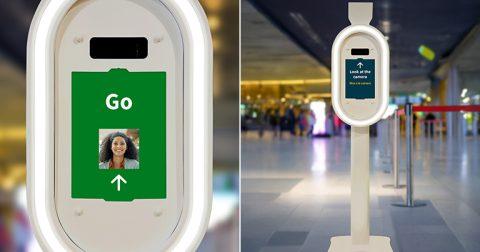Amazon Web Services (AWS) – a Gold Sponsor of APEX FTE Asia Expo (Singapore, 11-12 November 2025) – is the world’s most comprehensive cloud platform, offering over 200 services from 84 Availability Zones within 26 geographic regions. For over 16 years, AWS has been helping millions of customers modernise their infrastructure, increase agility, and reduce costs. In this interview, ahead of APEX FTE Asia Expo, Bob Kwik, Worldwide Head of Airports and Ground Transportation, shares how AWS is at the forefront of innovating with artificial intelligence (AI) and generative AI technologies that are transforming how airports and airlines operate, supporting the world’s leading aviation companies through its comprehensive services and partner network.
See the full APEX FTE Asia Expo 2025 schedule at a glance >> Register for APEX FTE Asia Expo 2025 – free to attend >>“We’re delivering this innovation through advanced cloud and AI technology,” Kwik explains. “AWS services and AWS Partners solutions include AI applications that provide intelligent passenger information services and virtual travel assistants, along with predictive maintenance, computer vision for passenger flow optimisation, and biometric systems. Through AWS services like Amazon Quick Suite, which uses AI to analyse data through natural language queries, find critical information across your organization’s data sources, and automate workflows from simple tasks to complex processes, and Amazon Connect, our contact centre with built-in generative AI, we’re enabling air transport companies to deploy sophisticated AI capabilities that enhance both operational efficiency and passenger experience.”

AWS became a Gold Sponsor of APEX FTE Asia Expo to help advance digital transformation in the aviation industry and connect with digital and innovation leaders across the Asia-Pacific region. “As a Gold Sponsor, we join industry experts to discuss innovative solutions built on AWS and share key insights about the future of travel technology,” says Kwik. “The Asia-Pacific region represents unprecedented growth in aviation infrastructure, with numerous new airport construction projects and expansions planned. The design phase must consider how airports will operate in the future, building AI and automation into the terminal design and operation, allowing for future innovations and improvements while maintaining safety and security. These technologies enable the creation of truly smart terminals that are efficient, sustainable, and future-ready from day one.”
AWS’ participation allows it to work closely with customers to design solutions that tackle the industry’s biggest challenges – from data-driven personalisation and sustainability to operational improvements and passenger experience transformation. “We’re particularly focused on highlighting how our AI and machine learning capabilities can help Asian airports and airlines break down data silos, improve forecasting, and deliver seamless passenger journeys through collaborative innovation,” Kwik shares.
AWS fast-tracking innovation through a comprehensive range of cloud and AI services
AWS is fast-tracking innovation across the air transport industry through a comprehensive range of cloud and AI services. It sees three key areas ready for transformation: first, operational optimisation through AI-powered predictive maintenance and resource management – Brussels Airport’s AI-driven demand forecasting and Riyadh Airport’s smart maintenance systems demonstrate the immediate benefits. Second, passenger processing transformation through biometric solutions and automated screening technologies, such as Air Canada’s secure, decentralised identity verification solution on its mobile app, built with Amazon Rekognition. Third, commercial innovation through real-time retail analytics and dynamic pricing.

“The transformation extends to both staff operations and passenger experience,” says Kwik. “For staff, Ryanair transformed their crew operations by working with AWS to develop Ryanair Connect, an app that helps 15,000 cabin crew across 90+ bases manage their schedules efficiently. Inspired by Amazon’s own employee solutions, the app was adopted within just four weeks and handles up to 8,000 shift swap requests monthly that were previously processed manually. This demonstrates how cloud-based solutions can rapidly transform complex operational processes while improving employee satisfaction.”
For passengers, AWS is seeing innovative solutions that provide more relevant and timely information. Manchester Airports Group (MAG) worked with the AWS Prototyping team to develop a GenAI information kiosk that provides multi-lingual, conversational assistance to passengers in the terminal. “Using Amazon Bedrock, MAG moved from planning to execution in just eight weeks,” Kwik explains. “The solution not only serves passengers in multiple languages but also provides valuable insights into passenger needs and behaviour, creating opportunities to enhance customer experience and develop new commercial services.”
Similarly, Rome Fiumicino Airport’s new Virtual Assistant, developed with the AWS Generative AI Innovation Center and Storm Reply, helps 50 million annual passengers access real-time flight updates, parking information, and terminal services through WhatsApp and web channels. Built on Amazon Bedrock and using a multi-agent architecture, it demonstrates how airports can rapidly deploy sophisticated AI solutions while maintaining strict data privacy standards.
“We’re accelerating adoption of these technologies by providing secure sandboxes for experimentation and technical guidance that enables rapid development,” Kwik shares. “By combining proven use cases with the ability to test and scale quickly, we’re helping aviation companies reduce the risk of innovation while accelerating their digital transformation journey.”
AWS technologies are enabling a new generation of intelligent, responsive passenger experiences through the integration of Internet of Things (IoT) sensors, edge computing, and machine learning. “Our IoT solutions are delivering significant operational benefits – for example, United Airlines achieved $120 million in savings through IoT devices for aircraft turnaround optimization,” Kwik explains. “In another impressive example, Japan Airlines implemented DOLYS, an IoT-based system built on AWS serverless architecture to track over 3,000 cargo dollies at Narita Airport. This solution reduced dolly search times from 30+ minutes to near-instant, delivering annual savings of ¥71.7 million through fleet reduction, 14,157 hours in search time, and reducing CO2 emissions by 171 tons.”
Airports are deploying IoT sensor networks to monitor everything from baggage systems to environmental conditions, with edge computing enabling real-time processing of this data for immediate action. “Working with the AWS Generative AI Innovation Center, Dallas Fort Worth International Airport uses GenAI to analyse equipment incidents, maintenance guides, and digital twin data to help maintenance staff quickly identify required tools and parts to improve the efficiency and speed of repairs,” says Kwik. “In the customer service domain, LATAM Airlines deployed a digital agent using Amazon Bedrock and Claude 2 that handles 3,500 daily calls with 85% accuracy and achieves NPS scores more than double those of traditional channels.”
APEX FTE Asia Expo: “The opportunity to connect directly with digital and innovation leaders across the Asia-Pacific aviation industry”
Looking ahead, Kwik is eager to participate at the 15th anniversary edition of APEX FTE Asia Expo, taking place in Singapore on 11-12 November 2025. “What we value most about participating in FTE events is the opportunity to connect directly with digital and innovation leaders across the Asia-Pacific aviation industry,” he shares. “The region leads global aviation growth with its unprecedented airport expansion and commitment to digital innovation. From Singapore’s autonomous airport operations to Hong Kong’s smart border control systems, Asia-Pacific airports are setting new standards for technology adoption. This year’s event is especially significant as we’re at an inflection point in aviation technology. The convergence of GenAI, agentic AI, and advanced data collaboration is creating unprecedented opportunities. We’re seeing the emergence of sophisticated AI agents that can coordinate across multiple stakeholders to deliver seamless passenger experiences, from intelligent rebooking during disruption to personalised retail recommendations throughout the journey. These technologies, combined with cloud’s ability to enable rapid deployment and scaling, are creating entirely new possibilities for personalised passenger experiences and operational excellence across the travel ecosystem.”
Kwik adds a key message that aviation is entering an unprecedented era of transformation. “Whether you’re exploring AI applications, planning infrastructure modernisation, or developing new passenger services, AWS provides both the technology foundation and the expertise to accelerate your journey. The AWS team looks forward to engaging with industry leaders to discuss aviation’s digital future.”
Hear more from Amazon Web Services (AWS) in the Premium Conference at APEX FTE Asia Expo, taking place in Singapore on 11-12 November 2025. Gary Ong, APJ Transport Sales Leader, Amazon Web Services (AWS), is participating in a session focused on ‘Embracing collaboration and commercial innovation to create new revenue & business opportunities’.
See the full APEX FTE Asia Expo 2025 schedule at a glance >> Register for APEX FTE Asia Expo 2025 – free to attend >>







